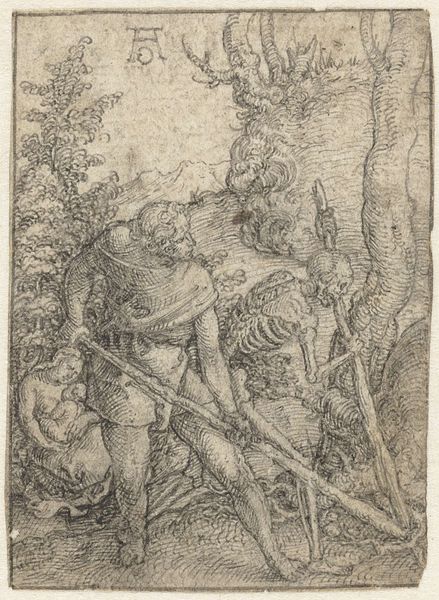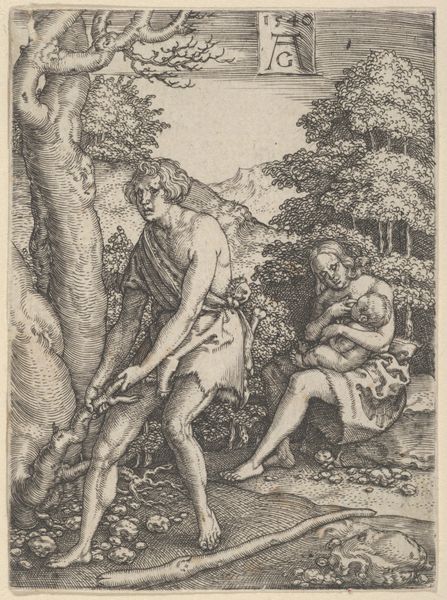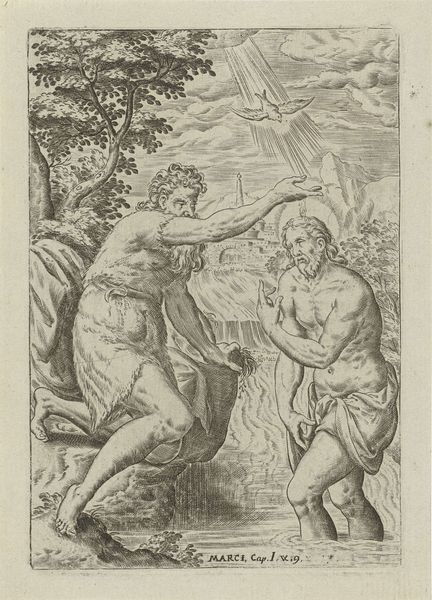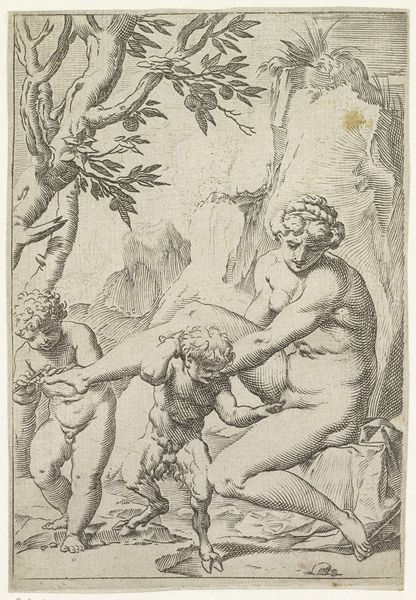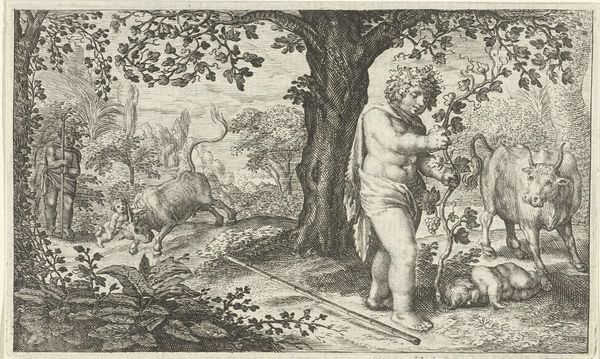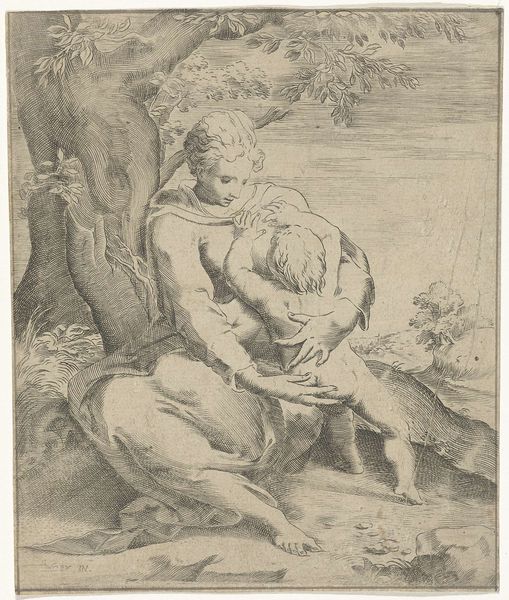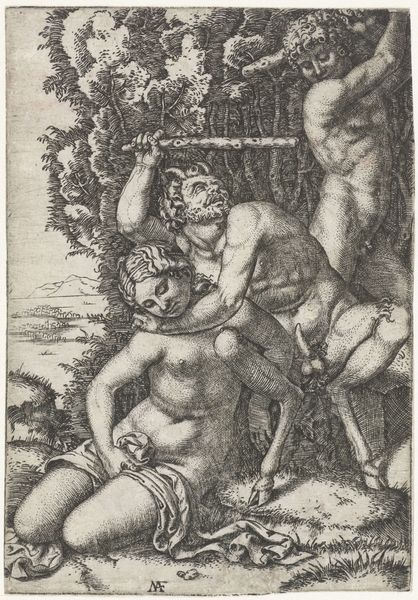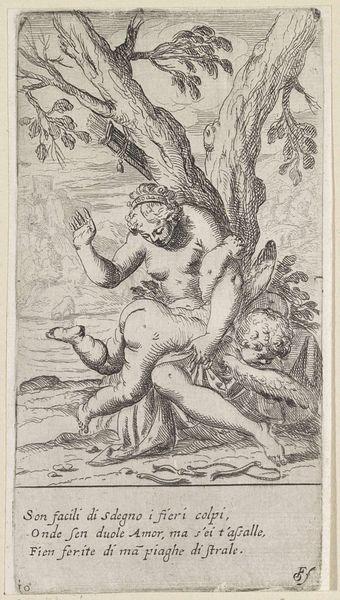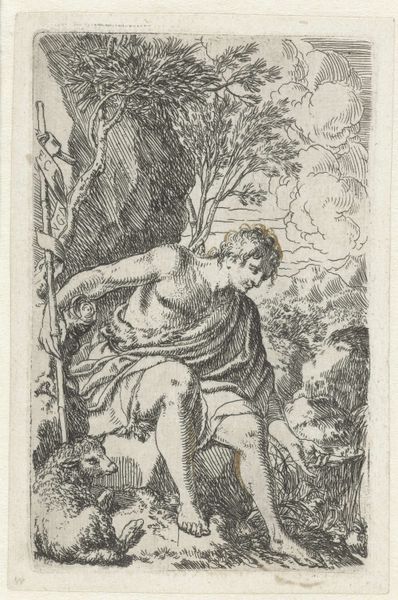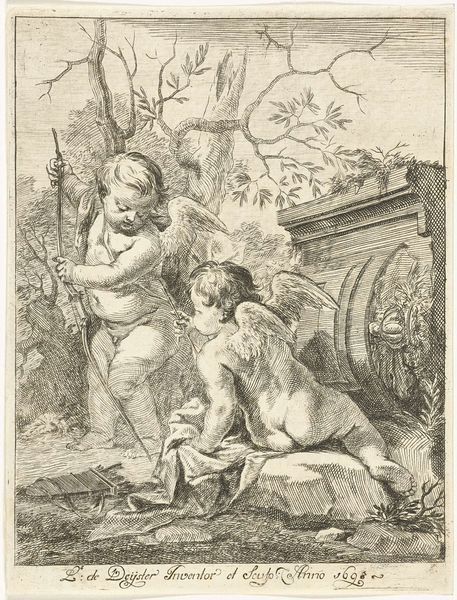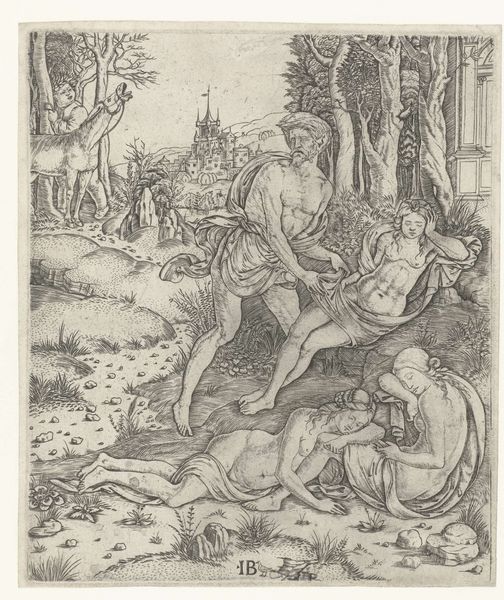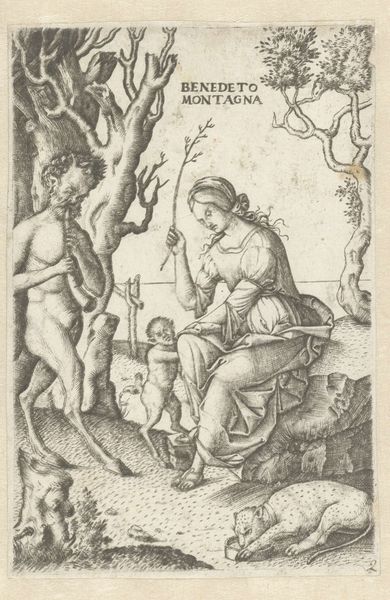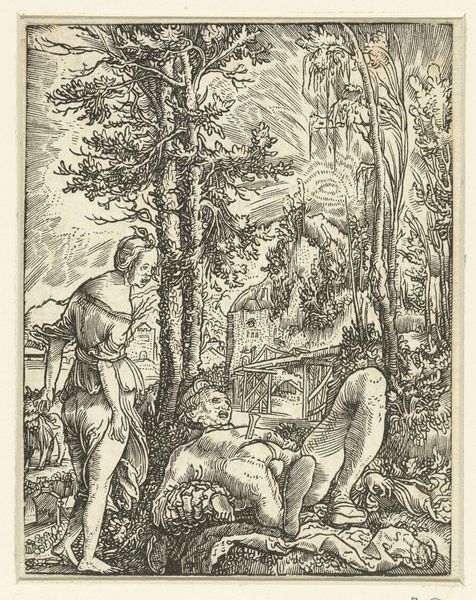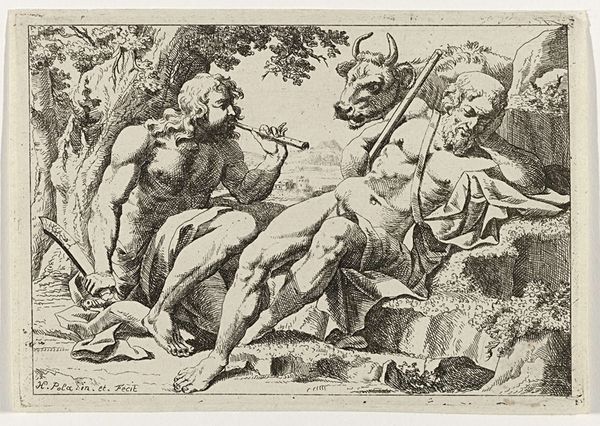
drawing, pen, engraving
#
drawing
#
pen sketch
#
pencil sketch
#
landscape
#
figuration
#
pen-ink sketch
#
pen work
#
pen
#
history-painting
#
northern-renaissance
#
engraving
Dimensions: height 86 mm, width 63 mm
Copyright: Rijks Museum: Open Domain
Heinrich Aldegrever etched this small copperplate, “Adam beploegt de aarde, Eva zoogt haar kind,” sometime in the first half of the 16th century. The print depicts Adam tilling the earth while Eve nurses their child, a poignant visualization of the post-Edenic world marked by labor and childbirth. Consider the act of tilling—an ancient symbol of humanity's struggle with nature, echoed in the tales of countless cultures, from the plowing rituals of antiquity to the modern farmer's toil. It is a recurring motif, embodying the cyclical return to the soil, our primal connection to the earth, and the sweat of our brow. Likewise, the motif of the nursing mother reaches back through time. This image transcends mere representation, tapping into the collective memory of nurturing and maternal care. It is a profound psychological symbol, evoking feelings of safety, warmth, and unconditional love, engaging viewers on a deeply subconscious level. The non-linear progression of symbols such as these highlight the cyclical nature of human experience, resurfacing and evolving, gaining new meanings and emotional resonance across epochs.
Comments
No comments
Be the first to comment and join the conversation on the ultimate creative platform.
